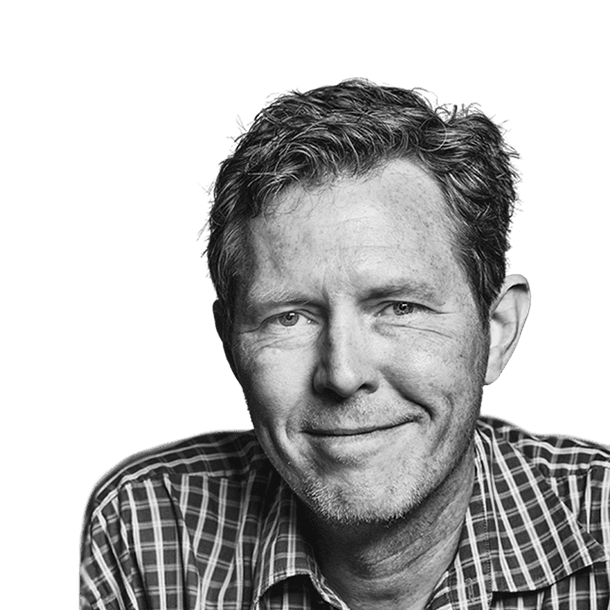View the archive of my two-hour class and discover Five Things I’ve Learned about some of the essential elements that enable music to communicate, cohere, and endure.
Hi, I’m Robbie, and I’m a musician and a songwriter. Most of my songs are in the old-school country and bluegrass vein, but I also love jazz, blues, rock-and-roll, R&B, gospel, folk, and other American styles. I let anything and everything flow into my head when I’m making songs — all sorts of music and books and ideas and memories — which makes my stuff sound like me alone, I think and hope. But my voice and playing technique are definitely Appalachian-tinged, which delimits me usefully.
I’ve been playing shows since 1979 and touring and making records since 1989. I also write a little about music, and I occasionally teach camps and classes in songwriting and guitar playing, and I’m working on a book about the function of songs (aesthetically, socially, anthropologically, historically, biologically). All these somewhat disparate threads of thought and on-the-ground experience will feed into my “Five Things” class.
I want to think about the nature of songs with you. It’s a huge topic. What are songs “for,” if anything? Obviously the ones we like make us feel good, and they’re a way for people like me to make a living, but maybe there’s more going on than good vibes and profit motive. We all know about words as carriers of meaning and building blocks of ideas and stories, but what about the other two big song elements, tone and rhythm, why are those so appealing and powerful? When a song strikes us as a standout in its compositional grace, what are the characteristics at play?
There’s a temptation — I’ve certainly indulged it from time to time — to assert: “this [song/style] is better than that [song/style].” Over time I’ve become convinced that aesthetic opinions are unsupportable by proof or reason, and relatedly, that allegedly rock-solid principles of songwriting and composition are time-stamped vogues. That what we like is simply what we like, depending on where and when we’re born, what we’re exposed to early on, what was on the radio when we fell in love, etc. With that in mind, I’m going to try to avoid opinionating much during the session (slight exception in the premise of #5 below), because I don’t want to waste time spinning wheels. Also I’m hoping that people of widely varying tastes will feel welcome and get something out of the session. We’ll ecumenically explore the properties of songs that make them cohere, endure, and communicate emotionally. Of course my reference points will be the set of all the songs I’ve heard, which means more Lennon and McCartney than trap and drill, more Merle Haggard than madrigals.
It’s a fascinating subject! And I’d love to hear your feedback as we go. I’ll stick to the rule of five, but I’d like to wander pretty widely, between subjects one and five. This might make the session feel a little scattershot, thematically. But music’s all over the place! Songs are a slippery, multifarious subject.
Here are my five things:
— The grammar of pop songs. I learned the “Nashville number system” as a Music Row writer in the 1990s, and it improved my work instantly. We’ll leverage a simple do-re-mi scale to understand chords as musical building blocks with in-built relations. If you’ve been to Berklee, it’ll be useless; if you’re mathematically hard-to-reach, it might be challenging; for most of you, I think I can make it grok-able. And if you happen to be a guitar-based songwriter who doesn’t know this system, I promise this will be of great use.
— The social function of songs. This is something I haven’t exactly “learned” in a systematic or scholarly way, but am in process of learning about, and I’d like to share some of my findings and speculations. I’ll touch on songwriting in ancient Mesopotamia, Greece, and medieval France; the Renaissance as a pivot in perspective; the invention of the phonograph and rise of the music industry as a revolution in song consumption and production.
— “The singer not the song.” A “song” is, among other things, a blueprint and a performance (in the flesh or on a recording). I’ll explain why I think performance is an actuality that trumps “composition” which is a potentiality and always subject to change.
— Storytelling in song, using “non-relatable” details. Think of the “warm smell of colitas” in Hotel California,something no one can relate to because it’s not even a thing; or, if you’ve heard Doug Kershaw’s Louisiana Man, the names of his family members that are included in the storyline. On the surface, it doesn’t stand to reason that popular songs can reference things that listeners can’t hope to get a handhold on. But there’s a lot about songs and stories that doesn’t “stand to reason.”These last 15 years, I’ve evolved from a detail-skeptic to an unabashed pointillist. I’ll talk about why.
— Good songs keep giving. And in any broad theorizing about music, we should keep concrete examples close to hand, to make sure we know what we’re yakking about and don’t stray off into the clouds. I’ll play and analyze a song whose construction I think is brilliant: “Still Crazy After All These Years” by Paul Simon.
Please join me!
-Robbie Fulks
Music and Song
Discover inspiring classes about music and song from people we admire.
Learn more, view personal video invitations to all sessions, and get special discounted pricing using the Five Things I’ve Learned Multi Pass.

